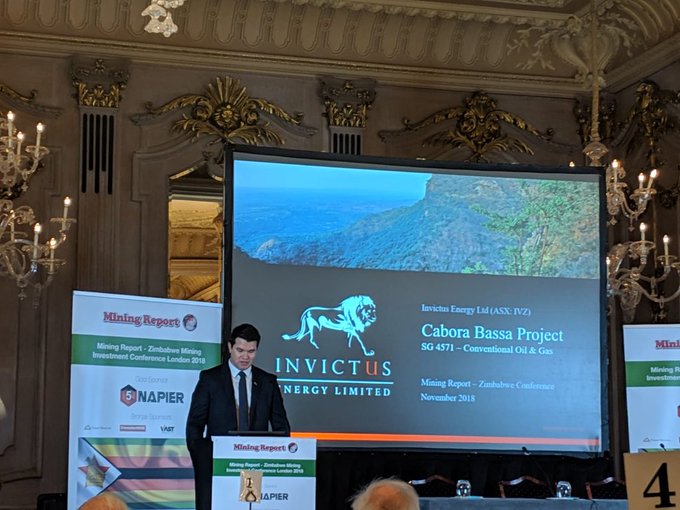Invictus ropes in Canadian firm for Muzarabani survey
INVICTUS Energy has awarded Canadian firm Polaris Natural Resources a contract to undertake seismic survey (gathering earth vibrations) on its special grant in Muzarabani where it is exploring for oil and gas.
The Australia-Stock-Exchange (ASX) listed firm will use the data gathered from the seismic survey programme to select sites on which oil and gas test wells would be drilled starting in October this year.
This will be the first time an oil/gas well will be sunk in Zimbabwe with up to US$15 million expected to be spent on each test — well needed to determine the existence and commercial viability of the deposits.
A seismic survey is a method used during the exploration phase of oil and gas development projects.
The method uses devices to collect data that gives a first idea of what is present underneath the earth’s surface.
The awarding of the seismic contract to the Canadian company comes after Invictus Energy last month signed a petroleum exploration development and production agreement (PEDPA) with the Government.
The agreement provides the framework for accelerated development of the Muzarabani oil and gas project as well as rights and obligations of each part throughout the lifecycle of the highly anticipated transformative project.
President Mnangagwa said at the signing ceremony for the PEDPA that the agreement will provide a pathway for Zimbabwe to exploit its hydro carbons while the discovery of oil and gas will bring with it significant downstream benefits.
Benefits expected to accrue include energy self dependency (oil, electricity, production of liquefied petroleum gas), petro-chemicals, revenue to the fiscus, growth in exports, job creation and downstream industries among others.
Invictus said in a statement yesterday that Polaris had conducted over 1 000 seismic projects since 1996 and introduced the first “low impact seismic crew” into the Africa continent in 2008.
Polaris has reportedly conducted over 15 projects in East Africa and has been well accepted in all communities where it has operated.
“Polaris will also deploy the world’s newest and smallest wireless recording nodes and receivers,” Invictus said in the statement released on the ASX’s website.
Bill Mooney, Polaris chief executive said: “Polaris is very pleased to support Invictus (Energy) on this world class project.
“The combination of technologies being employed represent not only the lightest seismic footprint possible, but also allows for very fast and high resolution data acquisition.”
Polaris intends to conduct, process, and interpret a minimum of 400 line kilometres of 2D (two dimensional) seismic in order to refine the Mzarabani-1 drilling location and well path and identify additional prospectivity for the upcoming drilling exercise.
The proposed seismic survey will be conducted with a minimal environmental footprint and utilise existing roads and tracks wherever possible, Invictus Energy pointed out.
Invictus Energy managing director Mr Scott Macmillan also commented; “Our exploration programme is on track, and the significant amount of preparatory work that we have undertaken is paying off.
“We are using a very experienced contractor and have put in place a very experienced team to run the programme.
“The seismic programme will enable us to refine the Muzarabani-1 target defined from the existing seismic dataset and help us fill our prospect inventory ahead of our basin opening drilling campaign.”
The Invictus boss said the company, which has raised millions of United States dollars in recent weeks to support the oil and gas project, was very excited to get our exploration programme underway.
Invictus Energy non-executive director Mr Joe Mtizwa said processed data set gathered by French and global oil giant Mobil in the early 1990s had shown strong evidence of potential existence of commercially viable hydrocarbons in Muzarabani.
Invictus Cabora Bassa Project, which encompasses the Muzarabani Prospect, is a multi-trillion cubic feet and liquids rich conventional gas-condensate target, which is potentially the largest, undrilled seismically defined structure onshore Africa.
The prospect is defined by a robust multimillion dollar dataset acquired by Mobil in the early 1990s that includes seismic, gravity, aeromagnetic and geochemical data.-herald.cl.zw










